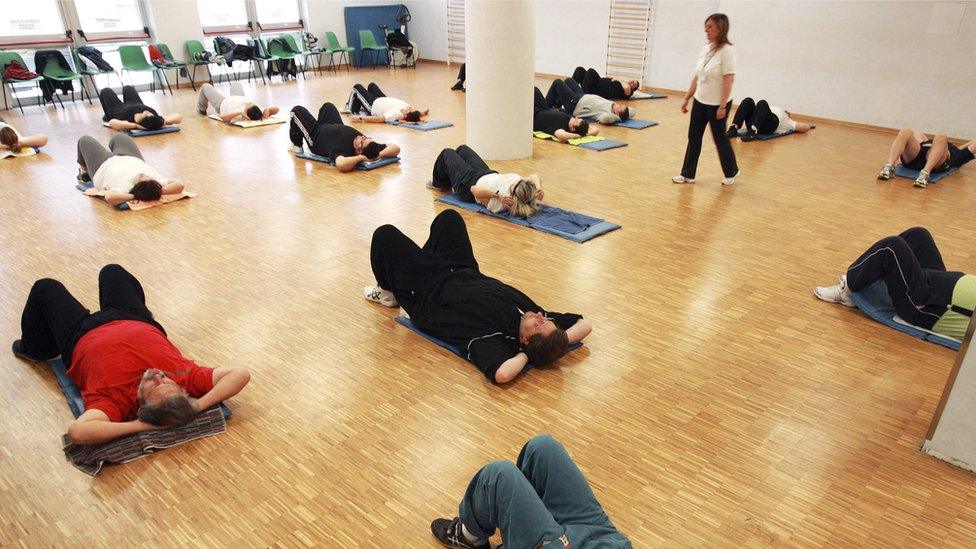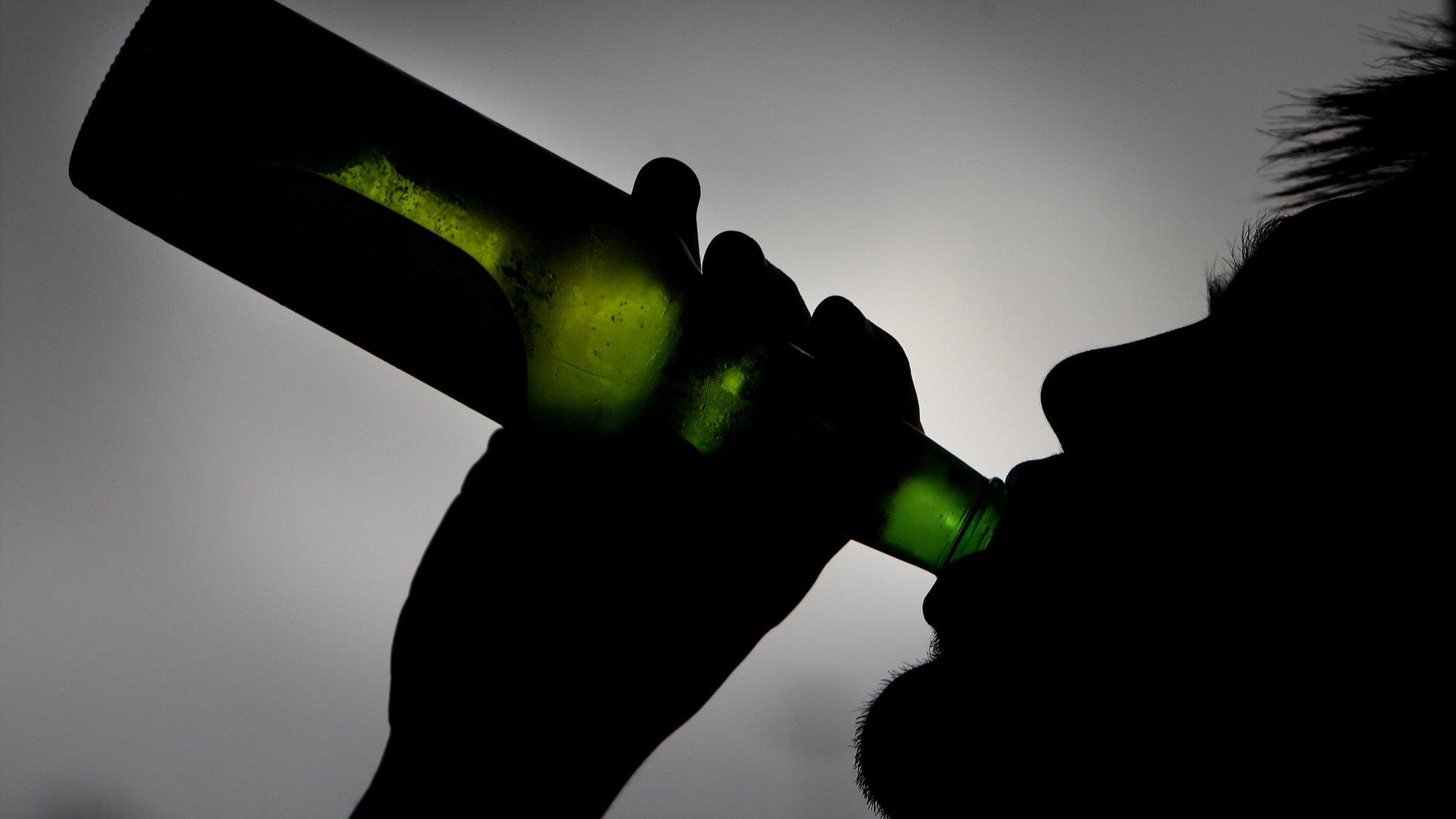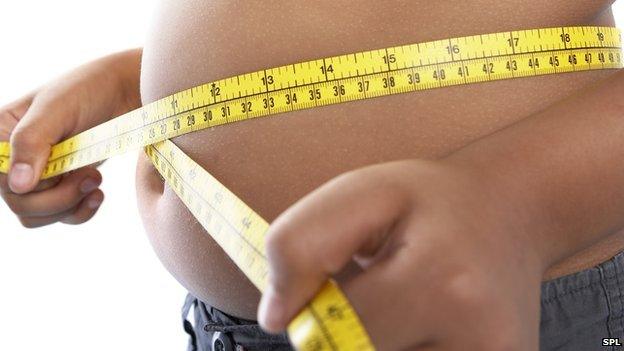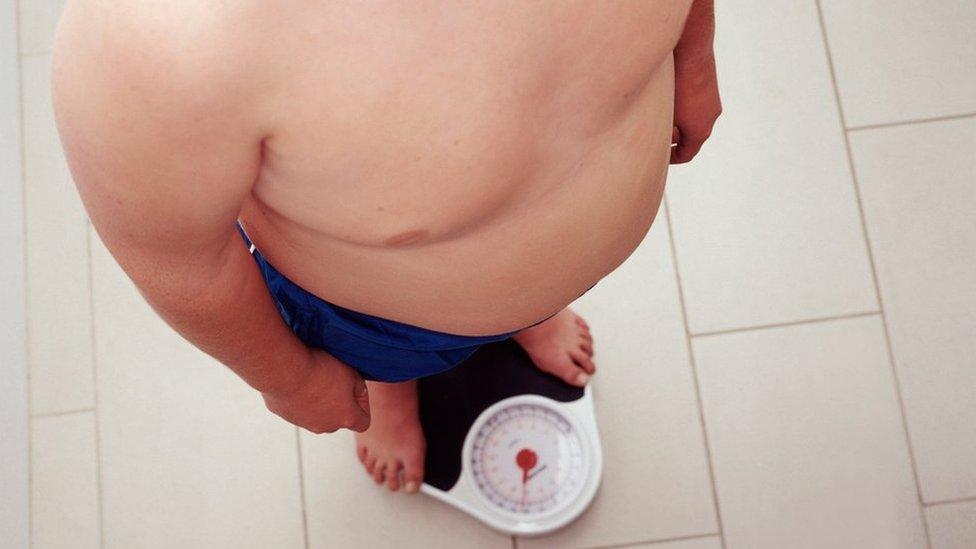Public health cuts 'could hamper anti-obesity effort'
- Published

Councils use some of the public health funding to pay for exercise schemes, weight management services and free leisure facilities
Local councils in England are warning that government cuts to public health funding could hamper their efforts to tackle obesity.
Local Government Association figures show that councils will have spent £505m by 2017 on fighting obesity.
Councils use the money to measure children's weight at primary school, help people lose weight and offer free or cheaper leisure facilities.
Public health became the responsibility of local authorities in April 2013.
Before that, it was run by the NHS.
The Department of Health said it was committed to tackling obesity and the government had announced a sugar tax on soft drinks manufacturers earlier in the year.
Prevention
The Local Government Association (LGA) receives money from the government to spend on public health, and this sum will fall from £3.38bn in 2016/17 to £3.13bn in 2020/21.
The association, which represents more than 370 councils - mostly in England and a few in Wales - said it was set to spend about half a billion pounds on obesity prevention in adults and children over four years.
This was made up as follows:
2013/14 - £112m
2014/15 - £126m
2015/16 - £140m
2016/17 - £127m
The LGA said the figures illustrated the amount of prevention work councils were carrying out and showed the scale of the obesity crisis.
The costs include running the government's National Child Measurement Programme, which involves calculating a child's BMI (body mass index) when they start primary school and again when they leave school in Year Six.
Recent figures showed that in 2014/15 in England, one in 10 children aged four and five was obese and one in five children aged 10 to 11 was obese.
Food and drink
The LGA said the overall cost of obesity was forecast to rise further.
It has previously called on the government to reduce sugar content in fizzy drinks, make sugar labelling clearer and provide more tap water in schools and restaurants.
Councils also want to have powers to ban junk food advertising near schools.
Izzi Seccombe, who is in charge of community wellbeing for the LGA, said councils were best placed to tackle obesity before it became a problem, but they needed more support.
"We would like assurances from the government's new administration that the long-awaited childhood obesity strategy is still on track and that it includes tough measures that will help to reverse the rise in costs and children becoming obese.
"Today's obese children will be tomorrow's obese adults, and with this comes a range of costly and debilitating major health conditions."
- Published2 January 2016

- Published23 April 2016

- Published26 November 2015

- Published16 March 2016

- Published11 November 2015
